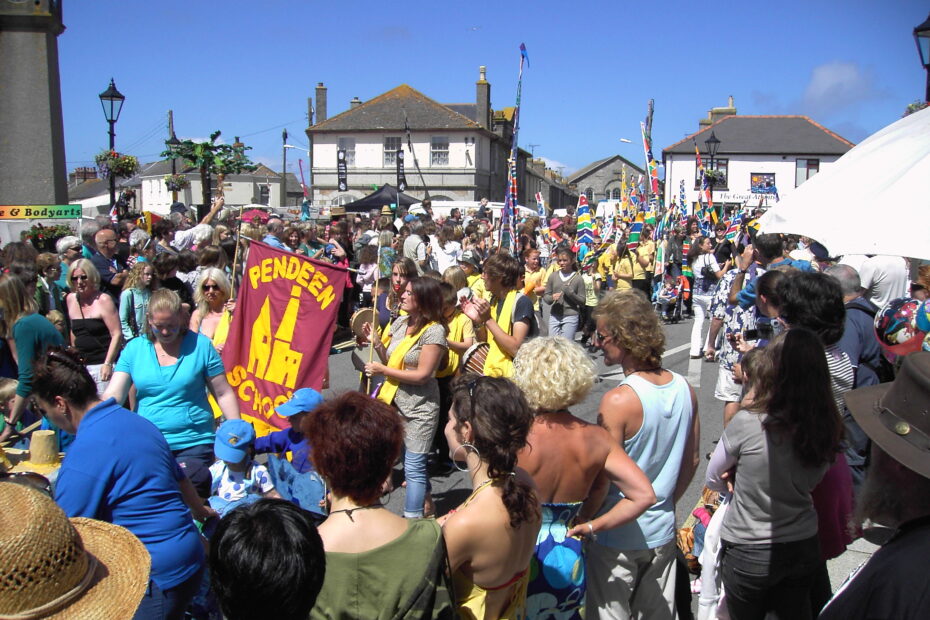Back in 2002 the Cornish Devolution issue re-emerged into the political consciousness of the UK, seemingly rounded and well formed. It seemed that not a week went past when one of the national newspapers wasn’t running a story about the Cornish language, economy or bid for devolution.
The crucial questions are ‘how’ did the Cornish devolution debate apparently creep up on everyone unawares, and how is it that the Cornish identity issue is so deeply embedded on the psyche of the people of Cornwall – so much so that it appears that this small region (once a nation) seemed to have awakened from a long slumber, and what does this all mean for devolution in the UK, if anything?
During Tudor and Stuart times Cornwall had also been almost perpetually in the news, partly because of its huge mineral wealth and critical importance to the English exchequer, partly because its enduring linguistic and cultural separation from England and therefore strangeness, but also because it was the source of rebellion and its ability to give the Crown and Parliament a nasty shock from time to time (The Cornish Rebellion 1497, The Prayer Book Rebellion 1549 and its major role in the Civil War 1642-1649).
However, maps of Britain were eventually rewritten so they no longer showed ‘Anglia et Cornubia’ (England and Cornwall), but only England, the separate paraphernalia of the Cornish parliament became sidelined, the operation of its legal jurisdiction was taken over by the County Court system and the Cornish language declined to virtual extinction. In the 1860s and after a tremendous boom period, Cornish mining started to collapse and with it Cornish emigration grew to epic proportions, just like in Ireland. In 1889 (one year later than ‘English’ counties) Cornwall’s administration was reshaped in the same manner as elsewhere.
Below the surface however, there remained and still remains a rich vein of ‘core identity’, a deep current that propels Cornwall and the Cornish away from Middle England and indeed the other parts of the UK. Yes, Cornwall has over 600 kms of coastline and is a virtual island, Truro is nearer to Dublin than London, and Penzance is closer to Brest than Bristol with Exeter is 120 miles distant, but that’s not all there is to it: As Viscount Waverley famously quoth in the Lords, “Crossing the border between Devon and Cornwall is like falling off an economic cliff.” Cornwall’s economic well-being is not aligned with Southwest England, and there is no ‘London effect’ in Cornwall.
But even economic and geographical considerations do not explain the persistence, and strengthening of Cornish identity. There are more obvious symbols of identity such as the revival of the Cornish language, flags, car stickers, food and cuisine, festivals, dance and music. But, like similar phenomena in Wales, Scotland and elsewhere these might be considered of niche interest, part-time or skin-deep attributes of nationhood.
However, I suggest that such strength-in-depth of identity comes from another, less obvious reservoir: that of family history, networks of extended friendships and kinships, a shared background and mythology through the generations, childhood and school memories, parental values and heritage passed down from living grandparents and older people. All this creates a powerful context for social and political regeneration, and may explain why the revival of Cornish identity apparently or abruptly emerged during the 1990s and 2000s: family roots and communal networks, when in fact it was there all along.
And one needs to be in no doubt about the extent of devolutionary interest and pressure in Cornwall. It is not a ‘niche interest’ – in fact there are indications that a majority in Cornwall wish to see significant devolution of powers from Westminster – polls have been robustly consistent, varying from 60% to 85% in favour. When England’s regional devolution programme under Mr. Prescott came to grief (even the Northwest failed to show significant interest), Cornwall’s ‘Declaration for a Cornish Assembly’ resulted in 50,000 declaration forms being handed in, validated and handed to Downing Street: Cornwall acts like a nation rather than a region in many important regards.
Cornwall appears to be a similar trajectory to that taken by Wales and there are some similarities with Scotland too. It seems to be catching up in the way that matters most national consciousness and self confidence. Political and administrative structures may be the slowest to change but there is evidence of bottom up change here too, and one might speculate on the time-line for future change.
Whether there are lessons for the English regions here is more difficult to assess as there are distinct regional variations across England that make it impossible to generalise, particularly the impact of large urban centres and the extent and role of regional and local identities.
Some factors such as the powerful symbolism of having a regional language clearly are not applicable outside the Celtic fringe, but the importance of a shared heritage, sense of a ‘direction’ and the ability to develop a sense of confidence and security that are crucial in mobilising a desire for devolution. As we have seen in Spain and UK, devolution tends to happen quickest and deepest in the ‘linguistic regions’, and Cornwall is likely to be the next candidate for a new settlement.
